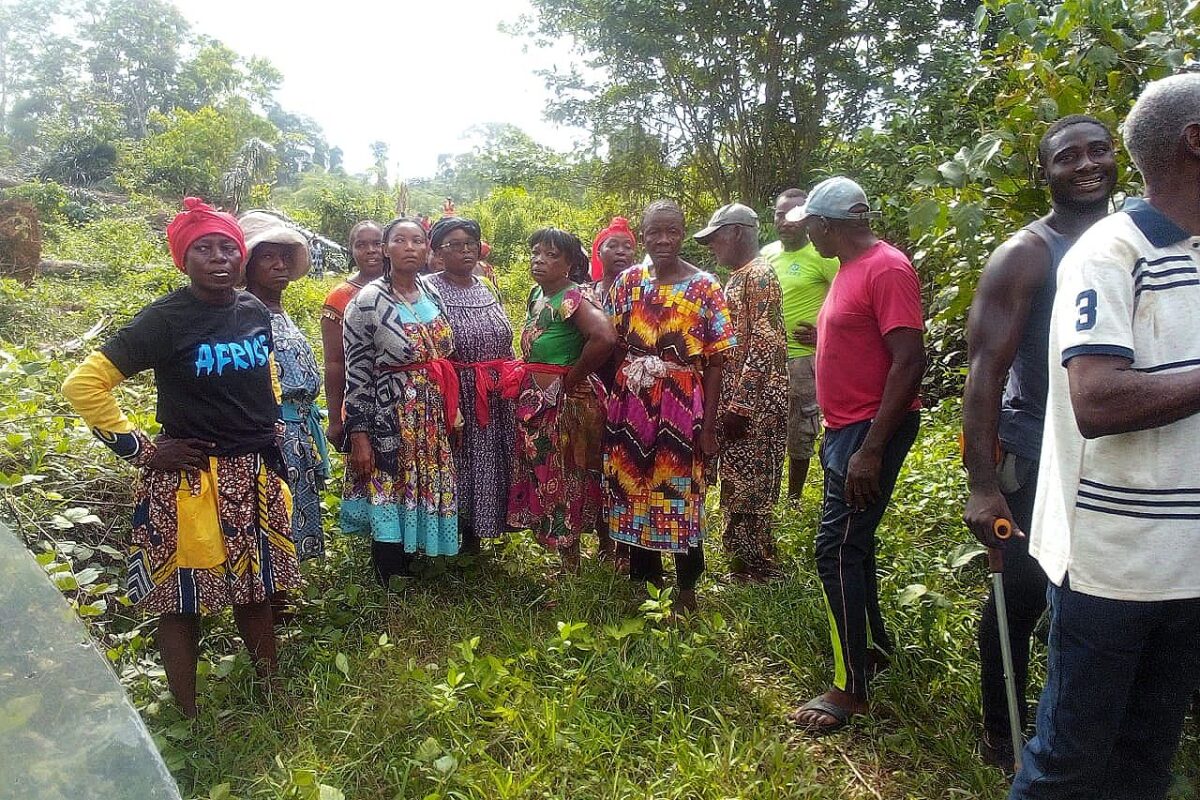- cross-posted to:
- cameroon@baraza.africa
- cross-posted to:
- cameroon@baraza.africa
Villagers in Cameroon have denounced the use of tear gas by authorities to break up their protest on March 25 against the replanting of oil palm trees by the plantation company Socapalm on disputed land in the country’s southwest. Residents of the village of Apouh à Ngog say the land should have been returned to them, and that 6,000 young banana trees they had planted to assert their claim have now been uprooted. Félicité Ngo Bissou, president of the Association of Women Residents of Socapalm- Édéa (known by its French acronym, AFRISE), accused Socapalm’s Luxembourg-based owner, Socfin, of “using a strategy of intimidation and beatings to prevent us from accessing our lands.” “That’s why they came armed to the teeth, uprooted all the bananas, and are planting oil palm trees everywhere,” she told Mongabay by telephone on Apr. 3. Members of the residents’ association AFRISE planting bananas amidst a cover crop earlier planted by Socapalm. Image courtesy Félicité Ngo Bissou/AFRISE. AFRISE members and others from the village of Apouh protesting the re-planting of a section of the Socapalm plantation that they say should be returned to them. Image courtesy Félicité Ngo Bissou/AFRISE. Apouh à Ngog is is one of several villages at the center of a long-standing land conflict between residents of the Édéa commune and Socapalm. Villagers say that since the plantation was established in 1969, the company’s activities have steadily encroached upon their ancestral lands, leaving them with little space for farming, housing, or burials. In the case…This article was originally published on Mongabay
Posted from Conservation news RSS feed, see !meta@rss.ponder.cat


